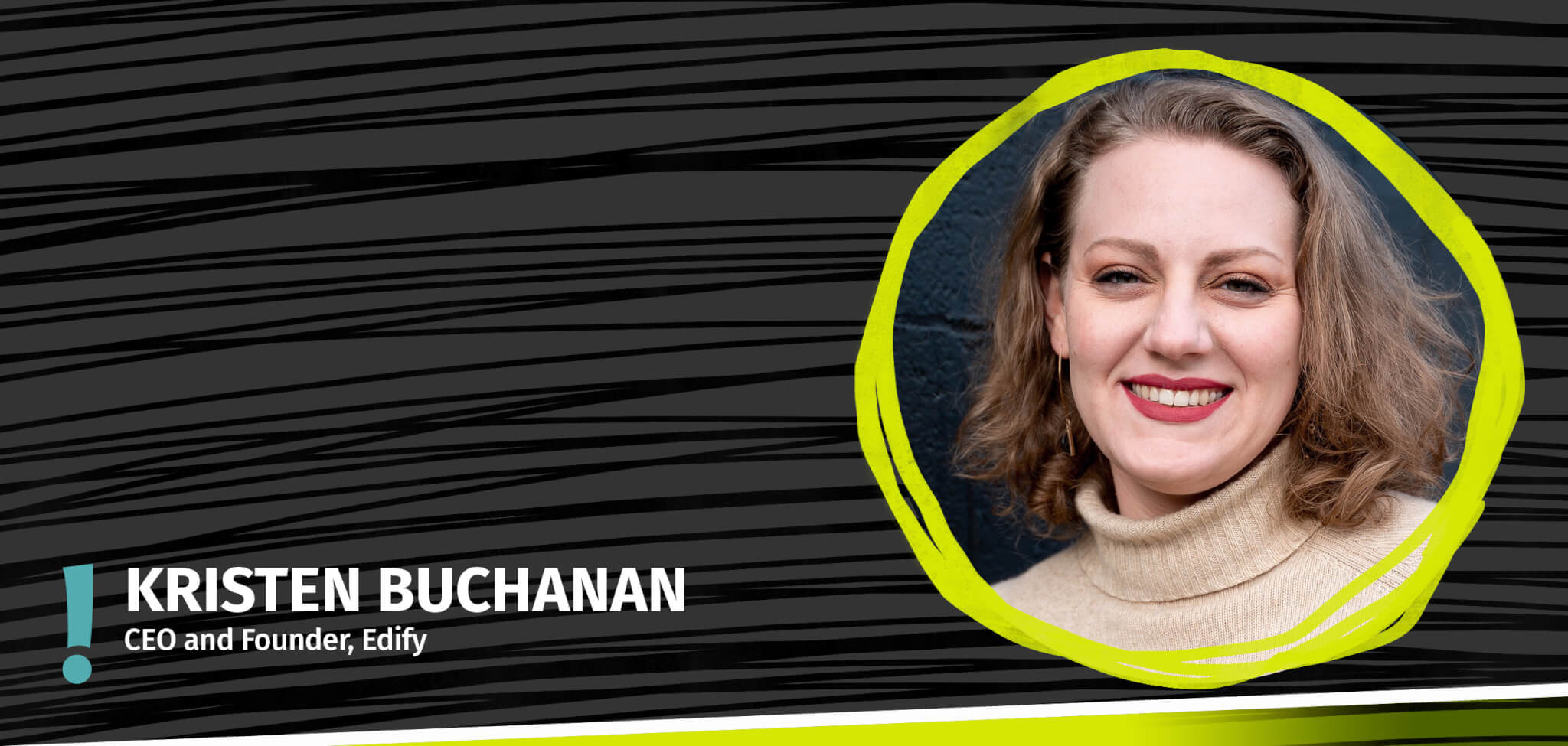There are industries considered tough for women to break into, and then there’s software development. The image of a white man as the person who does “computer stuff” is so ingrained in our brains that it’s been the subject of multiple TV characters, including on SNL and The Office, and even an entire TV show: The IT Crowd.
Think that claim is exaggerated? Consider this: Until recently, the first task for a student in Computer Science 101 at Stanford University was to make the computer draw a picture of a naked woman. (True story.)
Software companies are notoriously hostile to women and people of color. So when Kristen Buchanan, CEO and founder of Edify, decided to raise the money she needed to launch a competitive software startup, she knew she would be running a marathon uphill. But even she was surprised by some of the hurdles she encountered, including scoffs at her young age and gender, incredulity from people who thought she couldn’t possibly be serious, and an utter lack of belief in her ability to succeed.
“There have been times when people (both men and women) assumed I didn’t have the right experience needed due to my age,” she said. “And there have been times when male vendors or customers automatically assumed I wasn’t the business owner, or that they didn’t need to respect me.” One vendor even refused to make eye contact, assuming she was “less important.”
Overcoming these challenges requires more mental fortitude than most of us can muster. While we can’t fix other people’s biased thinking, we can control how we react to it and what lessons we take from it.
Kristen fought and won her way through every one of her roadblocks by using a three-step mental defense: “First, I assume best intent — that someone is not trying to offend me,” she said. It’s true that many times, people are biased or hostile without even being aware of it. Their actions and reactions are so ingrained that they almost act on autopilot.
But if they are being intentional about their rudeness? Kristen sees it as an opportunity to be the bigger person and not be dragged down to their level. “I can invite that person into conversation with me to see if we can ‘reset’ our relationship,” she said.
If neither of those steps works, then, she said, it’s time to forgive — but not necessarily forget. As she sees it, someone who is being rude or dismissive reflects who they are, not who she is. So instead of taking it personally, she just files it away and moves on.
“I have a mental filing cabinet for people who treat me poorly,” she said. “I’ll put someone there and just assume that they’re unhappy and that’s why they’re being rude. Then I will try to avoid working with them in the future.”
It’s a solid strategy, but it’s not 100% foolproof, because sometimes ignoring a rude person isn’t an option. Maybe it’s a key potential investor or a critical customer, but when Kristen butts heads with someone whom she sees as key to her success, she works to get them past their biases.
In these encounters, curiosity is her secret weapon. She knows that if she just says, “No, you’re wrong,” she’s going to get a defensive response at best and a complete shutdown at worst. But if she asks something like “I hear you saying X. Why do you believe that? Where did that belief come from?”, the other person is forced to see their own thinking.
“It’s important to let your customers and other partners save face because people do business with people they like, know, and trust,” she said. “If you make them feel stupid while trying to fight back, it’s not going to end well for you or that person.” And, as the old saying goes, “There’s being right, and there’s dying alone.” Sometimes the goal is not to land a final verbal punch but to let your partner come to their own conclusions and then move on.
Ultimately, though, Kristen knows that when people judge her based solely on something they think is true about her, they lose out on opportunities both to connect with others and to get what they want. She also believes that this type of behavior reflects a deep unhappiness within the person who perpetuates it, as if they would rather cling to their own sense of superiority than succeed with the help of others.
“That causes them to fail to see the huge opportunities of working with people who don’t match their assumptions and biases,” Kristen said. “And that’s really unfortunate for them because they’ll miss out on great experiences, making money, learning something.
“All sorts of positive outcomes show up when you choose to be open-minded instead of biased.”





Kristen knows that when people judge her based solely on something they think is true about her, they lose out on opportunities both to connect with others and to get what they want.